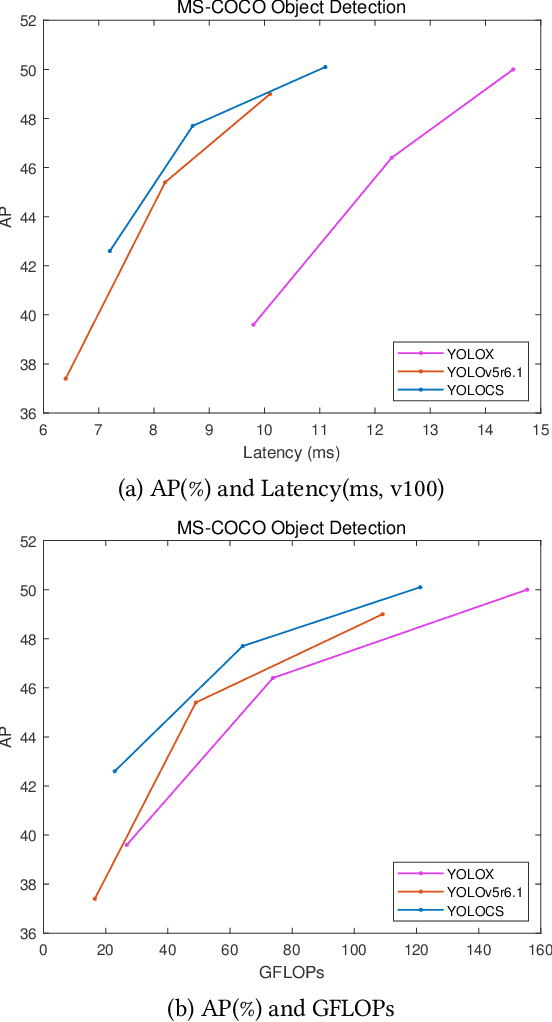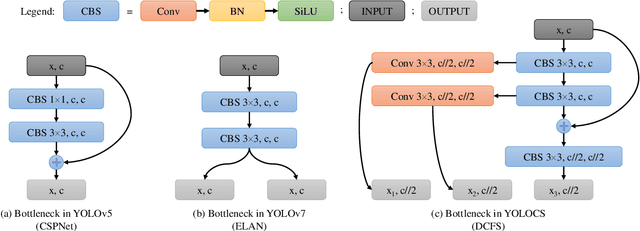YOLOCS: Object Detection based on Dense Channel Compression for Feature Spatial Solidification
Paper and Code
May 07, 2023



In this study, we examine the associations between channel features and convolutional kernels during the processes of feature purification and gradient backpropagation, with a focus on the forward and backward propagation within the network. Consequently, we propose a method called Dense Channel Compression for Feature Spatial Solidification. Drawing upon the central concept of this method, we introduce two innovative modules for backbone and head networks: the Dense Channel Compression for Feature Spatial Solidification Structure (DCFS) and the Asymmetric Multi-Level Compression Decoupled Head (ADH). When integrated into the YOLOv5 model, these two modules demonstrate exceptional performance, resulting in a modified model referred to as YOLOCS. Evaluated on the MSCOCO dataset, the large, medium, and small YOLOCS models yield AP of 50.1%, 47.6%, and 42.5%, respectively. Maintaining inference speeds remarkably similar to those of the YOLOv5 model, the large, medium, and small YOLOCS models surpass the YOLOv5 model's AP by 1.1%, 2.3%, and 5.2%, respectively.
 Add to Chrome
Add to Chrome Add to Firefox
Add to Firefox Add to Edge
Add to Edge